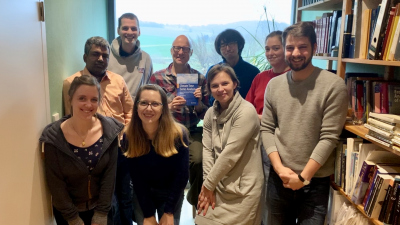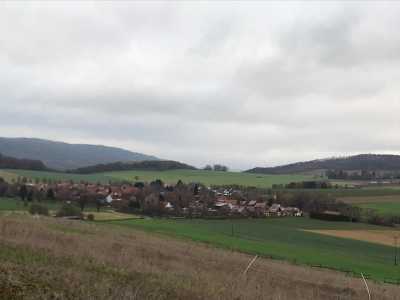- Graduate School GLOMAR
- PhD student reports
- Other activities
- Corinna Oster
Corinna Oster
Report of GLOMAR PhD student Corinna Oster about her participation in the 29th Basic Course in Climate Time Series Analysis in Heckenbeck, Bad Gandersheim, Germany from the 2 to 6 December 2019
The 29th Basic Course in Climate Time Series Analysis took place in the small village Heckenbeck, Bad Gandersheim, Germany from the 2 to 6 of December 2019. The course was organised and held by Manfred Mudelsee.
The statistic course was based on the book called “Climate Time Series Analysis, Classical Statistical and Bootstrap Methods” by Manfred Mudelsee. We started with lectures about the fundamental statistical concepts (bootstrap, persistence, probability density function, regression, correlation and spectral analysis), followed by examples learning how to apply these statistical methods. Furthermore, there were open sessions where we analysed our own data sets with the mentioned statistical methods and provided statistical software. Overall eight Scientists from six different countries attended the course.
For me as a Paleoclimate scientist trying reconstructing sea surface temperatures during the last deglacial with fossil and modern shallow water corals it was very important to learn about the statistical methods belonging to regression calculations. I got a lot of useful input and explanations of different statistical methods, which I could apply for my own data set. Therefore, we got a step by step introduction into the provided software for each type of statistical analysis. These practical examples were helpful to understand the theoretical statistics. The productive working atmosphere was supported by the inspiring discussions with the other course participations from different research fields and the calm atmosphere in the small village Heckenbeck. Moreover, the patient explanations of Manfred Mudelsee to all our question made it much easier to understand all these mathematical concepts. In summary I can say that I learned a lot about different statistical methods and especially how many of them I can use for my data set depending on what I want to know. With the background knowledge from the course and the provided book as well as software on which the course was based made it much easier to reproduce the statistical methods later after the course.
All in all, I took a lot of advantage from the course, which helped me to apply the statistical methods to my data set and I could extend my research network by meeting people with different research background. I would like to thank GLOMAR for founding my participation.




